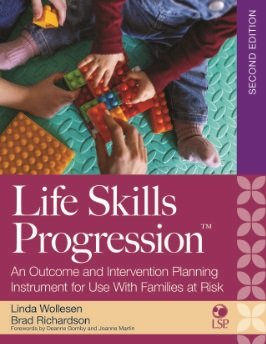
LSP Research & Evaluation
Introduction
The Life Skills Progression (LSP) is an outcome measurement instrument designed so that it is also a case management planning tool by programs serving low-income parents of children ages 0-5 years. Forty-three parent and child scales describe key skills and abilities for assessment in six major categories of functioning: Relationships, Education and Employment, Health and Medical Care, Mental Health and Substance Use, Basic Essentials and Early Child Development. Many home visitation programs use the LSP to assess strengths and prioritize needs to plan clinical interventions, gather outcomes data, and provide data for research and evaluation purposes.
The Life Skills Progression is also a useful tool for analyzing data on social determinants of health, and assessing and improving health literacy. Three additional data elements are available that are highly associated with motivation and ability to access, understand and use information and services to promote and maintain a woman’s health and that of her children (Renkin & Nutbeam 2000).
In order to use the LSP you will need the LSP handbook, training to ensure reliable use, and use a standardized developmental screening tool such as the Ages and Stages Questionnaire (ASQ) (www.agesandstages.com) for assessment of Early Childhood Development.
